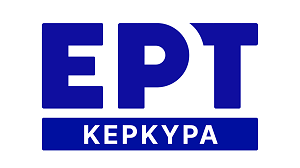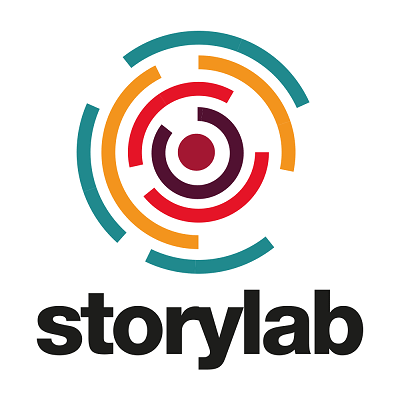Introduction
Social media is impacting all areas of human activity in the 21st century. Utopian rhetoric that has helped bolster social media and define its programmatic goals has also profited from this rise. This study explores the notion of techno-utopia in historical events and the construction of the new social-media based techno-utopianism. The goal is to shed light and understand techno-utopia and how it was created to more accurately express visions of an ideal future very different from the past. Furthermore, it also examines the utopian promises of social media, their rate of realization, and their impact on social and political dimensions.
Theoretical framework
Techno-utopianism is a philosophical belief that technology can bring about a utopian society by solving all the problems of humanity. This view holds that technological innovation can create a future in which we can achieve an ideal society free from social, economic, and political issues.
One of the earliest advocates of techno-utopianism was the French philosopher Auguste Comte in the 19th century. He believed that science and technology would replace religion and become the new source of moral guidance for humanity.
In the 20th century, the rise of modern computing and communication technologies popularized techno-utopianism. Many prominent figures in technology and science have embraced techno-utopian ideas, such as inventor and futurist Ray Kurzweil. Kurzweil believes that technology can enable humans to transcend their biological limitations and achieve immortality. Another techno-utopian idea can be found in the work of economist and author Jeremy Rifkin. Rifkin argues that the Internet and other digital technologies have the potential to create a "collaborative commons" that could replace capitalism and lead to a more equitable and sustainable future.
However, techno-utopianism has also been criticized for its overemphasis on technology as a solution to social problems and its failure to address the political and economic structures that underlie these problems. Critics argue that techno-utopianism ignores the complexities of human society and the ways in which technology can reinforce existing power structures. As historian Tom Standage notes, "techno-utopians see technology as a solution to all social, economic and political problems. But the idea that technology alone can create a perfect society is fundamentally flawed."
In recent years, social media has given rise to new hopes. The thought that the use of social media is a vector for change has been widely discussed in different areas:
-Political activism: Social media has been used to mobilize political protests and movements. For example, during the Arab Spring, social media played a critical role in organizing mass protests and uprisings in countries like Egypt, Tunisia, and Libya. Similarly, social media has been used to organize protests against police brutality and systemic racism in the United States and around the world, including the Black Lives Matter movement.
-Participatory journalism: Social media has also enabled citizens to report on events and issues that may not be covered by mainstream media. In some cases, citizen journalists have been able to provide a more nuanced and accurate portrayal of events than traditional news outlets. For example, during the Arab Spring, citizen journalists used social media platforms like Twitter and Facebook to report on protests, human rights abuses, and government crackdowns.
-Social movements: Social media has been used to amplify the voices of social movements, making it easier for people to learn about and get involved in a wide range of causes. For example, the #MeToo movement used social media to raise awareness about sexual harassment and assault, while the LGBTQ+ rights movement has used social media to promote visibility and acceptance.
Research design and methods
This work uses a qualitative research design involving historical events and case studies.
The main sources of data for this study include academic literature, news articles, reports on the utopia, techno-utopianism, Arab Spring, participatory journalism and the #MeToo movement. The study uses content analysis methods to explore themes and patterns emerging from the data. The analysis was carried out in two stages. The first stage examines the concept of utopia and its social impact and manifestations over the centuries. The second examines the promises of social media, the speed with which they have materialized, and their impact on social and political dimensions, with a particular focus on case studies.
References
Aouragh, M., & Alexander, A. (2011). The Egyptian experience: Sense and nonsense of the internet revolution. International Journal of Communication, 5, 1344-1358.
Castells, M. (2015). Networks of outrage and hope: Social movements in the Internet age. John Wiley & Sons.
Chadwick, A. (2013). The hybrid media system: Politics and power. Oxford University Press.
Comte, A. (1851). A General View of Positivism. London: John Chapman.
Kurzweil, R. (2005). The Singularity Is Near: When Humans Transcend Biology. New York: Viking.
Rifkin, J. (2014). The Zero Marginal Cost Society: The Internet of Things, the Collaborative Commons, and the Eclipse of Capitalism. New York: Palgrave Macmillan.
Standage, T. (1999). The Victorian Internet: The Remarkable Story of the Telegraph and the Nineteenth Century's On-line Pioneers. London: Weidenfeld & Nicolson.
Tufekci, Z. (2017). Twitter and tear gas: The power and fragility of networked protest. Yale University Press.
Valia Kaimaki is an Assistant Professor at the Department of Digital Media and Communications of the Ionian University.
Evanthia Bantiki holds a BA in Modern Greek Studies, an MA in Modern Greek Literature (AUTH), and is currently pursuing a second MA in New Media Communication at the Ionian University.
Back














